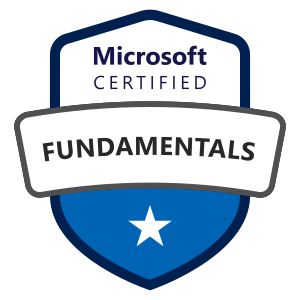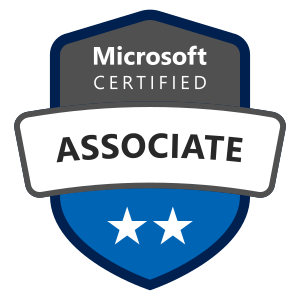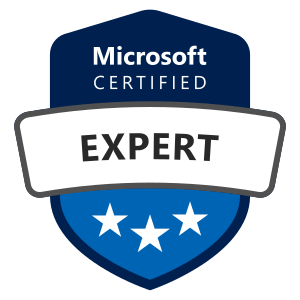

Getting a Microsoft Azure certification provides evidence of your subject matter expertise in several areas of the Microsoft Azure platform. In this article, we discuss the benefits of certification, as well as the best Microsoft Azure certifications to pursue right now.
Read more: Best CompTIA Certifications for 2022
Microsoft Azure certifications validate that candidates have specific technical skills, rather than generic qualifications. Depending on your career level, Microsoft offers four tiers of Azure certification: Fundamentals, Associate, Specialty, and Expert.

Azure Fundamentals certification provides evidence of your foundational knowledge of cloud services and how they are provided with Microsoft Azure. It validates knowledge of cloud concepts with Azure services, workloads, security, privacy, and Azure pricing and support.
Azure Fundamentals intended for candidates who are new to Azure and cloud-based services and solutions. The certification helps prepare candidates for a career in roles like administrator, technology manager, developer, and business user.

Azure Administrator Associate certification provides evidence of subject matter expertise in managing, implementing, and monitoring the Microsoft Azure environment for organizations.
The responsibilities of Azure administrators may include managing, implementing, and monitoring the identity, compute, storage, virtual networks, and governance in the cloud environment. It also covers skills like adjusting resources, provisioning, and monitoring when needed.

Azure AI Engineer Associate certification demonstrates competency in building, managing, and deploying AI solutions that leverage Azure Applied AI services and Azure Cognitive Services.
The responsibilities of an AI engineer include participating in all phases of AI solutions development, such as defining requirements, system design, development, deployment, maintenance, performance tuning, and monitoring.

Azure Data Engineer Associate certification provides evidence of subject matter expertise in transforming, integrating, and consolidating structured and unstructured forms of data. Certificate holders are familiar with manipulating data to make it suitable for analytics solution building.
The responsibilities of data engineers may include building and maintaining secure and compliant data processing pipelines, and helping stakeholders understand the data through different tools and techniques.

Azure Data Scientist Associate certification provides evidence of subject matter expertise in applying data science and machine learning to build and run workloads on Azure.
The responsibilities of a data scientist may include planning and creating a suitable working environment for data science workloads on Azure. Data scientists also perform data experiments and train predictive models, as well as managing, optimizing, and deploying machine learning models.

Azure Developer Associate certification demonstrates subject matter expertise in designing, building, testing, and maintaining cloud applications and services on Microsoft Azure.
The responsibilities of developers may include participating in all phases of cloud development, from requirements to development, deployment, performance tuning, and monitoring.

Azure Security Engineer Associate certification displays competency in developing Azure security controls that protect identity, data, access, networks, and applications in the cloud and/or hybrid environments as part of end-to-end infrastructures.
The responsibilities of Azure security engineers may include managing security posture, designing threat models, implementing threat protection, identifying and remediating vulnerabilities, and responding to security incident escalations.

Azure Database Administrator Associate certification provides evidence of subject matter expertise in the methods and tools required to perform day-to-day database operations, implementing and managing the operational aspects of Microsoft cloud and hybrid data platforms.
The responsibilities of an Azure database administrator may include implementing and managing the operational aspects of cloud-native and hybrid data platforms implemented with Microsoft Azure Data Services and Microsoft SQL Server.

Azure Solutions Architect Expert certification demonstrates an advanced understanding of how to design cloud and hybrid solutions that run on Microsoft Azure, including computing, networking, monitoring, storage, and security.
The solution architect’s responsibilities include translating business requirements and advising stakeholders on designs for scalable, secure, and reliable Azure solutions.

DevOps Engineer Expert certification demonstrates subject matter expertise in advanced processes and technologies. A candidate with this certification should be intimately familiar with both Azure development and administration.
DevOps engineers design and implement strategies for collaboration, infrastructure, code, source control, compliance, security, continuous integration, testing, monitoring, delivery, and feedback.
Microsoft Azure certifications help candidates demonstrate subject matter expertise and improve their careers. The benefits of obtaining one or more of these certifications are numerous.
Microsoft Azure is one of the most usable, popular, and reputed platforms for IT and development. The exams are ideal for experienced administrators, engineers, and/or developers who are interested in specializing in Microsoft Azure.
An attractive salary package and improved personal brand are clear benefits for being Microsoft Azure certified. The wages of Azure certified candidates are competitive, although the salary ranges vary by country and organization. For example, Azure Fundamentals is an entry-level certification, but the average salary for certification holders is $98,000 according to ZipRecruiter.
Organizations in every industry are migrating to cloud environments for the benefits to computing, storage, and networking. Because Microsoft Azure is one of the top cloud providers, an Azure certified candidate is attractive to companies in a wide variety of industries.
Participation in the Azure Learning Path demonstrates a worker’s commitment to their employer’s business goals. As such, many companies encourage employees to specialize in Azure — your company may even offer to pay for your certification and training.
Microsoft Azure services dominate a large percentage of the cloud computing market. As more businesses embrace digital transformation, Microsoft Azure services are creating a large number of new jobs and opportunities. These recommended Microsoft Azure certifications can play an important role in your professional life and development.
Read next: Top 5 Cybersecurity Certifications to Advance Your Career


Al Mahmud Al Mamun is a technologist, researcher, and writer for TechnologyAdvice. He has a strong knowledge and background in Information Technology (IT) and Artificial Intelligence (AI). He worked as an Editor-in-Chief at a reputed international professional research Magazine. Although his Bachelor's and Master's in Computer Science and Engineering, he also attained thirty online diploma courses and a hundred certificate courses in several areas.
Property of TechnologyAdvice. © 2025 TechnologyAdvice. All Rights Reserved
Advertiser Disclosure: Some of the products that appear on this site are from companies from which TechnologyAdvice receives compensation. This compensation may impact how and where products appear on this site including, for example, the order in which they appear. TechnologyAdvice does not include all companies or all types of products available in the marketplace.